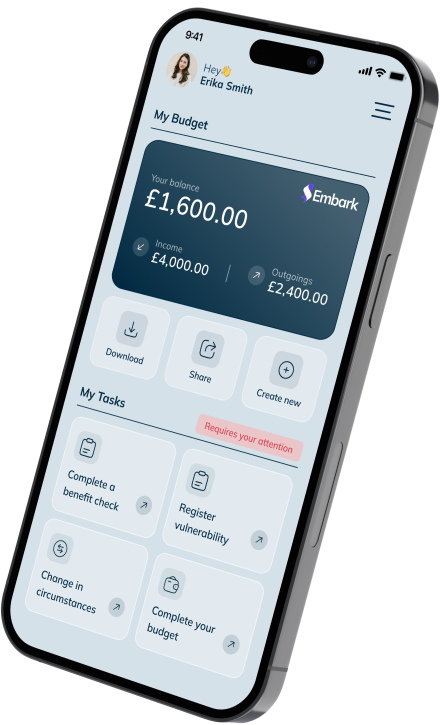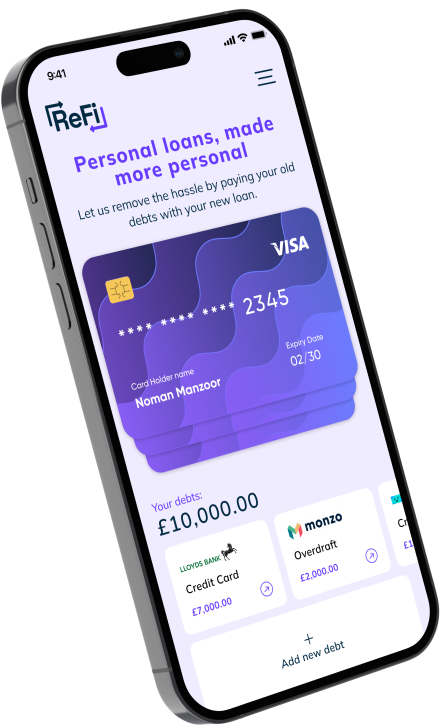One of the strongest themes running through Ofgem’s 2025 Consumer Vulnerability Strategy (CVS) is the demand for more affordable, tailored support for consumers struggling to pay their bills. Affordability is no longer a simple matter of setting blanket repayment options – it’s about ensuring each individual receives help that matches their unique financial situation.
This is where an Income & Expenditure (I&E) tool becomes not just helpful, but practically essential. When used correctly, an I&E tool helps ensure energy companies comply with the letter and spirit of Ofgem’s new ambitions: compassionate support, based on a customer’s ability to pay, delivered consistently across the sector.
In this blog, we review how Income & Expenditure assessments directly enable fairer, smarter, and more sustainable affordability support – and why it’s important the energy sector embraces them with priority.
Affordability support today: the state of the current market
For many vulnerable energy customers, affordability support today is patchy and inconsistent; the common issues include:
- One-size-fits-all repayment plans, often set without real insight into the consumer’s disposable income.
- Late interventions, only after significant arrears have built up.
- Inflexible repayment structures, offering little room for temporary hardship or fluctuating incomes.
- Stressful conversations, requiring consumers to repeatedly explain or justify financial hardship.
This reactive approach risks causing further detriment—exactly what Ofgem’s CVS aims to prevent. The Financial Conduct Authority has long recognised that inadequate affordability assessments can worsen consumer outcomes, particularly for those already in vulnerable circumstances (FCA Vulnerability Guidance 2021).
How Income & Expenditure tools can transform affordability support
Lessons can be learnt from industries such as banking and financial services, who already have done a significant amount of work on supporting vulnerable customers. Water companies have put in place schemes to support vulnerable customers, such as the WaterScheme, allowing space to breathe for those experiencing difficult times.
Here are just a couple of ways the an I&E tool could support energy companies:
- Tailoring repayment plans to reality
An I&E tool captures a full picture of a customer’s disposable income after essentials (housing, food, transport, etc.) are paid. Payment plans can then be discussed with a creditor to ensure:- Affordability: No repayment plan should push someone further into hardship.
- Sustainability: Realistic plans mean lower default rates.
- Consistency: Everyone is assessed against the same framework which avoids bias.
- Empowering consumers to engage in conversations
When customers know repayment plans are fair and based on their own data, they are likely to be more:- Engaged with their supplier early.
- Committed to repayment arrangements.
- Trusting of the process
- Ofgem’s CVS stresses the importance of rebuilding trust – an I&E tool is a concrete way to achieve this.
- Citizens Advice found that 71% of consumers would seek help earlier if they knew a structured, fair income assessment would be used.
- Reducing energy debt and arrears
- Early, tailored interventions prevent small arrears from spiralling into unmanageable debt, protecting both consumers and company balance sheets.
- Ofgem’s 2024 Debt Strategy highlights that by late 2024, the average consumer owed around £1,500 in energy bills (Ofgem Debt Strategy 2024). Smarter affordability interventions are essential.
- Linking consumers to broader support
An I&E assessment can also be used to determine eligibility for:- Fuel vouchers (e.g., Fuel Bank Foundation).
- Social tariffs such as the WaterSure scheme or the Warm Home Discount.
- Third-party referrals to debt advice providers or welfare services.
The I&E tool becomes a gateway to holistic support, not just debt management.
Case Study: How EON Next streamlined its affordability assessment process with Embark
EON Next partnered with Paylink to integrate the Embark platform into its affordability assessment process, to help provide more tailored support to its vulnerable customers.
Previously, income and expenditure forms would be sent in by E.ON Next’s customers from multiple different sources, which made responding consistently much harder than it needed to be.
Embark has enabled E.ON Next to build bespoke support packages for their customers to ensure they can keep paying their bills, but at a level that is suitable for them, while allowing customers a ‘grace period’ for payments so they can support them in the immediate future.
Some of the key achievements for EON Next include:
- 84% of customers go on to make digital payment proposals
- Opt-in open banking to reduce form completion times
- Integration opt-in with credit reference agency data boosts accurate budget completions
- Internal insights for the business with more accurate trend data
- Streamlined customer journey with integration into free debt advice with PayPlan.
Read more about our case study with EON NEXT.
Overcoming barriers: implementing I&E tools properly
Ofgem’s revised CVS and Debt Strategy send a clear signal to the energy market:
- “Affordable” means evidence-based support.
- “Compassionate” means structured fairness.
- “Tailored” means no assumptions about what a customer can afford.
An I&E tool operationalises these requirements, helping suppliers meet compliance and demonstrate ethical leadership. Below are a couple of areas of concern and how we can help with finding suitable solutions.
| Concern | Solution |
|---|---|
| Data protection risks | Work with your Data Protection Officer and follow the ICO’s guidance on data protection for vulnerable consumers. |
| Customer reluctance | Emphasise control and consent; use empowering language. |
| Integration costs | Treat implementation as an investment: reduced bad debt and regulatory fines offset costs over time. |
Bridging policy and compassion
An Income & Expenditure tool isn’t just a compliance measure, it’s a bridge between policy ambition and real-world compassion.
- It turns complex financial conversations into clear, human ones.
- It empowers people to tell their financial story without fear or shame.
- It helps organisations move from process-driven to people-first.
Most importantly, it ensures those already facing hardship are supported with tailored, sustainable, human-centred solutions. In a world of rising costs and inequality, embracing proactive affordability support isn’t just wise, it’s essential. Embark can help energy companies make spearheaded change in aligning to the CVS ambition, whilst streaming your affordability assessment with Embark, and connecting into our free debt advice partner PayPlan.








